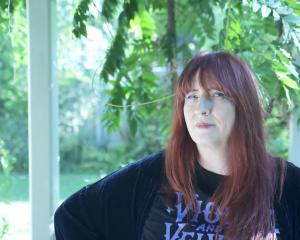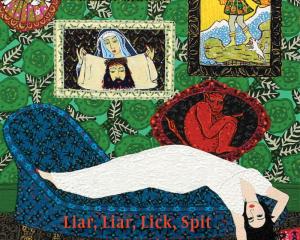Reviews of Nordy, A Season of Leaves, Uncommon Arrangements, The Spies of Warsaw and Endgame 1945 .

Nordmeyer was minister of finance in the second Labour government and his first budget, made necessarily stringent by the economic conditions left by the Holland-Holyoake administration, was instantly labelled the "black" budget.
Nordmeyer was never able to shed this particular albatross, although more astute students of politics realised very soon that it was a budget quite appropriate for the times.
Nordmeyer went on to become leader of the Labour Party in Opposition, until just two years later he was ousted in a coup by Norman Kirk and his acolytes in a manner which remains a stain on Kirk's leadership.
But what Nordmeyer should be recognised for - and Mary Logan's Nordy, a political biography (Steele Roberts, $44.99 pbk) does so effectively - is that he and David McMillan were essentially the designers of the foundation of the welfare state implemented by the first Labour government from 1938.
It has been well canvassed in this newspaper earlier this year how that came about, but the biography provides a wealth of hitherto unknown detail.
It also explains in great depth Nordy's many other good works over his long political career - works that truly represented his admirable commitment to Christian Socialism.
A Season of Leaves, by Catherine Law, Preface/Random, pbk, $36.99, is a most readable love story, based on the true life adventures of members of the author's family.
An aunt, working as a land-girl in England during the war, meets and marries a Czech soldier.
After the war, she travels to Prague to reunite with him, but by then Czechoslovakia is a communist country, and soon they must flee the regime.
How they meet, lose each other, meet again and escape again is an absorbing story, very well-written, and deeply moving.

"Marriage" is a term largely unsuitable for most of these relationships, since they frequently involved a third party, or were homosexual in nature.
But, as the author carefully establishes, they were no less sincere for that.
The usual suspects are examined - the Middleton Murrys, the Bells, the Morrells, even Radcliffe Hall and Una Troubridge.
Much of the material would not be new to readers familiar with the period, and I found more intriguing the question posed by Roiphe in her excellent postscript essay: How much do we really ever know about the "private terrain" of others' marriages? Well, I suppose answering that question keeps the fiction writers busy, too.

Furst is tops in the field, one of the stylists of the John le Carre school but without demanding much unravelling of the cryptic layers.
The Spies of Warsaw is a very simple story with a strong romance in the middle, whose hero, French, is suitably admirable, brave, and clever.
His cover in the French embassy in the Polish capital just before World War 2 is to enable him to ferret out the military secrets of the Nazis, but his main source loses his nerve and the hero must do the job himself.
It's a good, undemanding read for a quiet evening or two.

His latest, Endgame 1945 (Abacus, pbk, $29.99) deals with the few months on either side of May 8, 1945, when the war in Europe was officially declared over.
It is quite one of the best and most gripping reads I've experienced about the period, told first-hand through the eyes, diaries and accounts of several participants, with a good linking narrative.
Of special interest is the way Stafford has drawn on New Zealander Geoffrey Cox's experiences with the 2nd NZEF and its hard slog of a campaign up the eastern coast of Italy to Trieste.
But this is just one part of a very broad canvas, reduced with great skill to a manageable scale.












